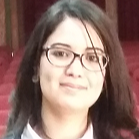
Wafaa Dachry
Work place: Hassan 1st University, Settat city, Morocco
E-mail: wafaa.dachry@gmail.com
Website:
Research Interests: Computer systems and computational processes, Systems Architecture, Process Control System
Biography
Wafaa Dachry was born in Casablanca in 1985. She received his PhD. in information system engineering from the Hassan II University, Casablanca, Morocco, 2013. She is an Assistant Professor at Faculty of Science and Techniques, Hassan 1st University, Settat city, Morocco. Her main research focuses on IT Governance, reverse logistics and traffic control system based on multi-agent system.
Author Articles
ITAAM Framework: An Adaptive Approach to Design, Measure and Improve IT Agility
By Yassine Rdiouat Wafaa Dachry Alami Semma
DOI: https://doi.org/10.5815/ijitcs.2017.10.04, Pub. Date: 8 Oct. 2017
In order to respond effectively to rapid and unpredictable changes in the business environment, information systems are forced to adapt by developing agility skills, so the company can grow or even survive in this changing environment. Thus, it is necessary to provide organizations an approach indicating how to design, measure and improve the agility of their information systems. In this context an iterative, integrated, flexible and balanced framework has been developed. This framework, called ITAAM (Information Technology Agility Assessment Model), is founded upon a simple model, derived from the Balanced ScoreCard methodology that is widely used as a system of performance measurement. Basically, the structure of our approach is composed of a conceptual framework, an evaluation methodology, an agility grid and a scoring system for the Global Agility Index calculation. Moreover, within every assessment cycle, the agility level is identified and a set of recommendations are provided as well as the necessary adjustment guidelines concerning the whole organization. As a result, sustainability and continuous improvement of agility can be ensured, which represents the main goal of our new construct.
[...] Read more.Other Articles
Subscribe to receive issue release notifications and newsletters from MECS Press journals